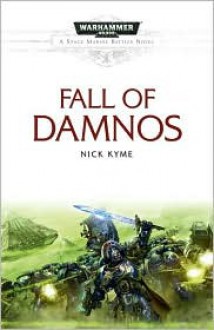
Mit dieser sehr dialoglastigen Geschichte, die schon fast ein Theaterstück darstellt, habe ich zwar wieder einmal etwas völlig anderes bekommen, als ich bei der Bestellung vermutet hätte, aber diesmal hat die unerwartete alternative Ausführung sogar mehr Charme als meine ursprünglichen Vorstellungen. Das Paartherapie-Drama hat mir sehr gut gefallen, wenngleich ich, so wie immer, Probleme mit dem Ende eines jeden Buchs von Nick Hornby habe, da der Autor ein gar so schlechter Finisher ist– wenn ich ihn nicht sogar für einen der schlechtesten im Literaturbetrieb halte.
Tom und Louise machen also Paartherapie und das Innovative dabei ist, dass der Autor nicht in den Sitzungen Mäuschen spielt, und diese beschreibt – so wie ich erwartet hätte – sondern nur immer das thematisiert wird, was die beiden Ehepartner vor der Therapie in einer Bar gegenüber besprechen, in der sie sich immer ungefähr eine halbe Stunde – beziehungsweise eigentlich einen Drink lang – davor treffen. Das ist insofern auf mehreren Ebenen charmant, da auch schon Reaktionen auf die letzte Sitzung in die Handlung eingeflochten werden, die beiden auch vor dem Leser ein Mindestmaß an Vertraulichkeit genießen und nur das breitgewalzt wird, was sie voreinander ansprechen, beziehungsweise bearbeiten und weiterentwickeln möchten. Was in der Sitzung war, bleibt in der Sitzung, es sei denn, es wird erörtert.
Damit bekommt die Leserschaft nicht das direkte Drama mit – inklusive der direkten Verletzungen und der Verletzlichkeiten, sondern eine zeitversetzte Reflexion darauf: teilweise Aktionen und Reaktionen, wenn sich die Gemüter schon ein bisschen abgekühlt haben und sich sogar vielleicht beim einen oder anderen etwas selbständig weiterentwickelt hat, manchmal ein völlig belangloser Nebenkriegsschauplatz, auf den ein schwelender Konflikt ziemlich grotesk und wundervoll witzig übertragen wird, aber auch oft ein noch intensiveres Drama und ein eskalierender Streit, weil das Problem der letzten Woche nachträglich noch in der Seele gebrodelt hat und in der einsamen Betrachtung noch mehr hochgekocht ist.
Im Gegensatz zur mangelnden Sorgfalt beim Finish kann kaum jemand eine Geschichte so gut starten wie Hornby. Die Leserschaft wird gleich in die Szene vor der ersten Sitzung geworfen und auf sehr humorvolle Weise mit dem Vorgeplänkel, beziehungsweise mit der Ausgangsproblemstellung konfrontiert: Sie hat ihn betrogen und er will eigentlich keine Therapie machen. Die Dialoge sind trotz des traurigen Themas für einen Außenstehenden extrem witzig konzipiert. Viele, die länger verheiratet sind, kennen bei einiger Selbstreflexion manche Szenen und das Palaver aus eigener Erfahrung nur zu gut. So à la Jedermann und -frau würden es witzig finden, es sei denn, sie sind mittendrin und betroffen. Als Louise und Tom sich am Ende der ersten Szene von der Bar gegenüber dann zum Therapietermin aufmachen und sie klingelt, gibt er Fersengeld und läuft davon – was für eine Eröffnung!
Der männliche Protagonist Tom ist übrigens ganz tiefgründig und aus männlicher Sicht vielleicht ein bisschen respektlos als Mehlwurm konzipiert. So ein passiv-aggressiver Typ, der sich sehr gerne wimmernd und lamentierend in der Opferrolle gegenüber seiner beruflich erfolgreichen Frau eingerichtet hat, sich darin suhlt, zur Dramaqueen mutiert und aus der unterlegenen Position ganz schöne Tiefschläge verteilt. Ein bisschen erinnert er mich an Rob aus High fidelity, aber Tom ist etwas lernfähiger als Rob. Auch Louise ist gut entgegen dem typischen weiblichen Rollenklischee gezeichnet: sehr pragmatisch, so schonungslos ehrlich, dass ihr manchmal nicht auffällt, dass sie auch ganz schön respektlos und verletzend ist, eine Macherin, die Probleme erkennt und dann auf ihre Weise manchmal viel zu schnell mit schlechten Aktionen und Lösungen reagiert, anstatt darüber zu reden.
Bei all den witzigen Dialogen und auf Nebenschauplätze verlegten Gefechten kommt so nach und nach sehr realistisch und konsistent beschrieben etwas Schwung in die Beziehung. Das Paar analysiert den Grund des Betrugs, das Sexproblem und einige andere Baustellen ebenso.
Tja, das Finish ist eben schon, wie gesagt, sehr oft wie bei Hornby abrupt und nicht wirklich in irgendeine Richtung interpretierbar – er lässt quasi die Tastatur fallen. Sitzung 10 fällt aus, weil sich die beiden in der Bar besaufen, und die Therapie absagen. Dabei ist noch viel zu wenig aufgearbeitet und weiterentwickelt, als dass die Ehe meiner Meinung nach weiter funktionieren könnte. Sie kommen überein, dass sie in einer permanenten Ehekrise stecken und sich nicht jahrelang zur Therapie begeben wollen. Da hilft eine zarte Hoffnung und ein „Ich liebe Dich“ von Tom im vorletzten Satz, das Louise als nicht ernstgemeint interpretiert, auch nichts. Versteht mich nicht falsch, Eheprobleme, die sich zur Never-Ending-Story auswachsen, auf siebenhundert Seiten auszuwalzen, ist ebenso weder spannend noch zielführend, aber diese Geschichte ist zu kurz und die beiden sind so weit entfernt von austherapiert oder einem konstruktiven Lösungsansatz, dass ich mir ernsthaft Sorgen mache. Das wird nix!
Fazit: Szenen einer Ehe pointiert und sehr amüsant präsentiert, die Figuren mit ihren Problemen sehr liebevoll und tief konzipiert, das macht Spaß und ist auch lehrreich für alle Paarbeziehungen, die schon ein paar Jahre auf dem Buckel haben. Leider verpufft sowohl die Entwicklung der Ehe als auch das Finale ins komplette Nirvana. 20 Sitzungen wären da mindestens notwendig gewesen – sag nicht nur ich, sondern auch der Verband der Psychotherapeuten ;-) .


 Log in with Facebook
Log in with Facebook 




 At multiple points both Peter and June note that Peter's having fun when it's dangerous, when things are violent, when the bullets are flying. As a reader, this is great—you don't see Reacher, Charlie Fox, Evan Smoak, etc. enjoying things quite like this. But I'm a little worried about what it says about him as a person.
At multiple points both Peter and June note that Peter's having fun when it's dangerous, when things are violent, when the bullets are flying. As a reader, this is great—you don't see Reacher, Charlie Fox, Evan Smoak, etc. enjoying things quite like this. But I'm a little worried about what it says about him as a person.





